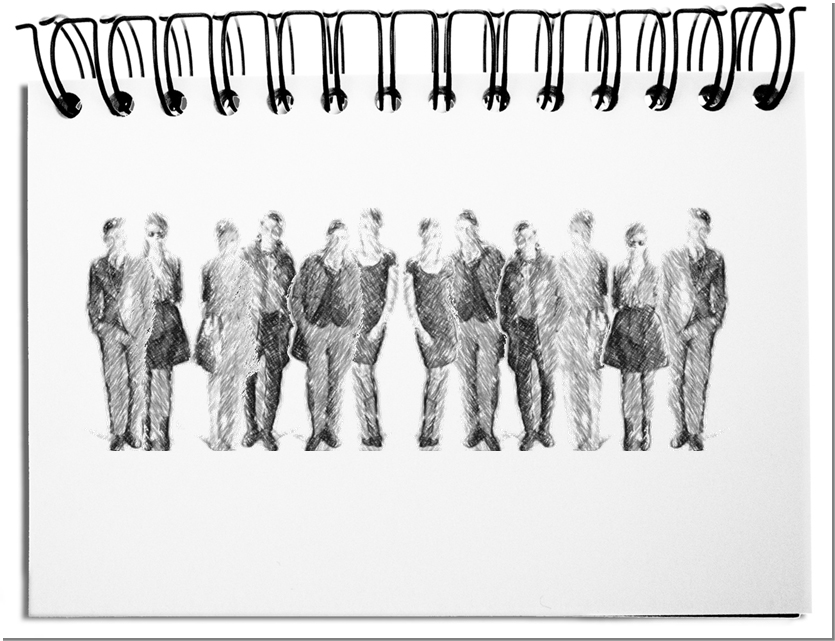Since any opinion can be published on the Internet, we have to face a confusing flood of views. In this jungle of standpoints, we have to develop our own identity. It is like deciding on your clothing style. Whereas in the past general fashion waves offered only a few alternatives, nowadays many styles make their waves. Self-consciousness is formed that cannot simply be assigned to the established groups – e.g. left-right, progressive or reactionary, (un)dogmatic, (un)human.
Joining a school of thought takes place in widely varying contexts. Each time it results in the adoption of another thinking – again and again. Role conflicts are thus inevitable. The way out is the convinced decision for a coherent attitude. The following steps offer a course in this direction.
- You have to deal with the content
A look at the current fashion trend is no longer possible due to the flood of offers. Even if the long-established fashion corporations stick to the annual shows, buyers are increasingly following new labels outside the mainstream. Influencers sift additionally through the offerings and make their subjective comments for others. The catwalk of business identities also follows this pattern. On the one hand, symposia and trade shows offer news regarding Business Models, IT, or Business Engineering. However, it is necessary to increasingly consider new topics, such as New Work, Diversity, Industry 4.0, and still, Globalization, to evaluate the hard factors of rigid structural and procedural organizations and the concreted system landscape from a different perspective. - You need your value system
In addition to one’s physique, the self-image and internal value system play a role in the choice of clothing. These beliefs have a mainly subconscious effect on the choice of look. Countless media provide ideas for any trend. This also applies to everyday professional life. Filter bubbles have emerged for every task, repackaging the same solutions over and over again. Consulting firms provide a coherent rationale for particular topics that are eventually adopted by the fields. Formulating one’s value system helps in choosing a solution. - You decide in any case
At the end of the day, it is the available wardrobe that defines what fashion you wear. You have two more or less conscious decision points: 1) the arrangement of the closet and 2) the spontaneous choice of the moment. The situation is similar for business opportunities. The groups that are prepared have an advantage, as only the options can be used that are available – the more diverse, the better prepared you are for the particular choice. Actively or passively – in any case, you decide. - You need to let go what you love
Every closet is limited. Thus, from time to time, you need to clean out to make room for something new. It is tough to part with the old clothes you cherish, even though they are often not in the best condition. The same is valid with building blocks of business. Over the years, a company builds up technical and organizational legacies that burden the workforce and the budget more than they help. Unfortunately, when new solutions are introduced, the responsible people forget to dismantle the old ones. This leads to organizational clogging that significantly reduces performance. - You must live your decision
Whatever you decide, wear your outfit with the respective confidence. You have learned about the alternatives, developed your criteria for selection, made a conscious decision – as good as it gets. In business, there are processes that make this examination of yourself possible: strategy, planning of all kinds, and formalized decision-making processes. Once decisions are taken, you should always be backed up by appropriate mentioning and appreciation so that everyone involved understands what is valid.
Bottom line: Identity is an essential element for workforce cohesion. Therefore, a framework that promotes a sense of belonging should be proactively created. To be able to decide, you consider the options based on your criteria and decide. To achieve the desired effect, you must let go of the cherished habits and foster the new approaches confidently and openly. Since the clothing style concerns similar aspects, it is the ideal metaphor for identity.


